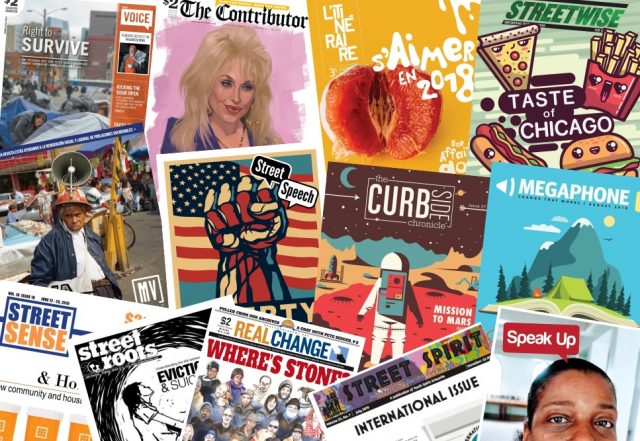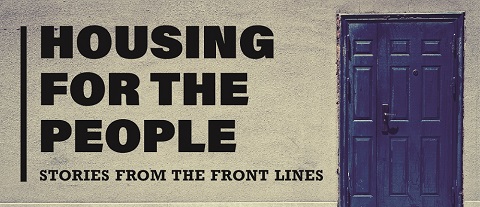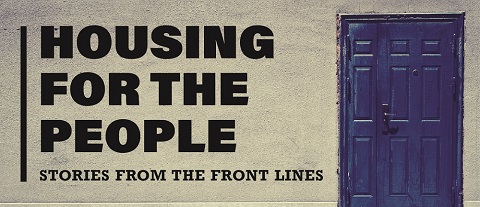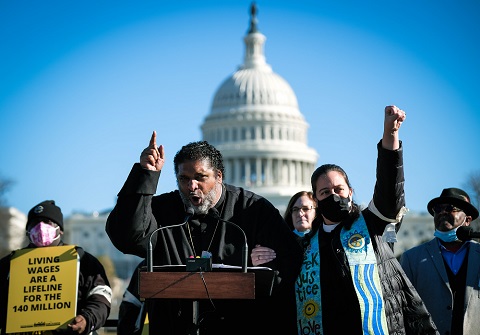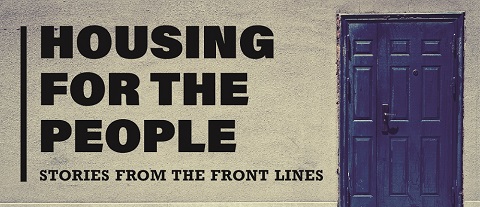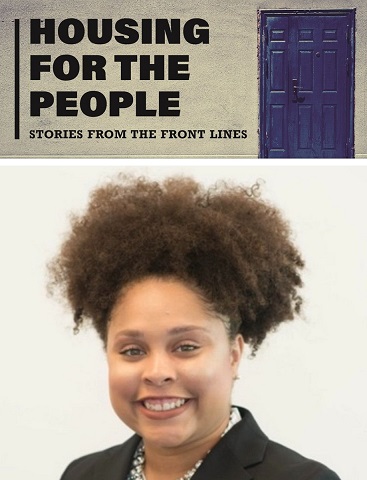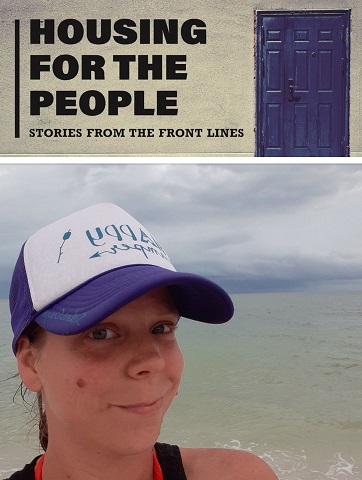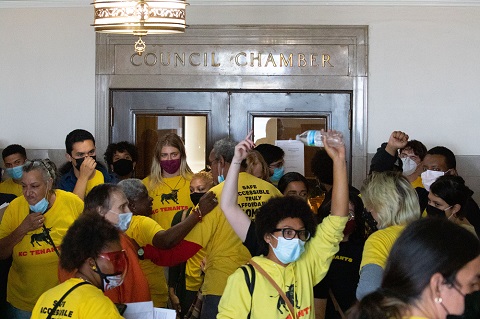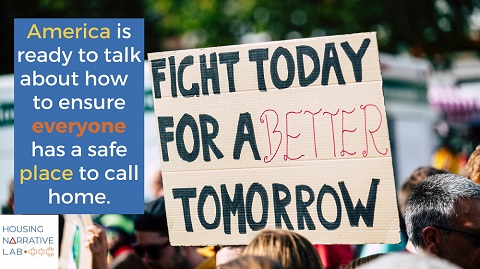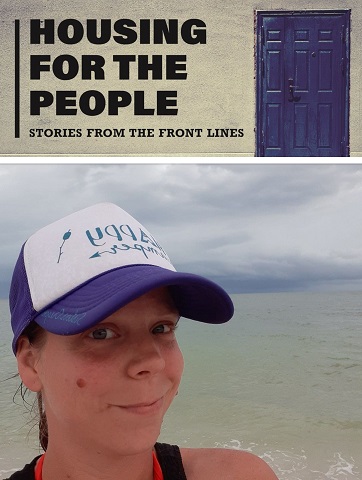By Kaela Roeder, Street Sense Media
When Aida Peery decided to get an abortion at 18, she felt scared and confused. It was a few years after the historic Roe v. Wade ruling, the 1973 landmark case protecting a person’s right to an abortion. But Peery was unsure how she could access the procedure.
At the time, the state of Illinois required unmarried people 18 and under to first obtain parental consent to undergo an abortion. Peery, nervous but committed to her decision, enlisted the help of a family friend to pose as her mother at a clinic in Chicago. She felt like she couldn’t be honest with her family about the situation
“I was scared to talk to my family about it,” Peery said. “They instilled a lot of fear in me.”
Now, amid a historic rollback of reproductive rights led by Republican lawmakers after the repealing of the precedent set by Roe v. Wade, the same law that allowed Peery to get an abortion all those years ago, instituting a patchwork of contradictory laws state-to-state, Peery feels the past creeping back up.
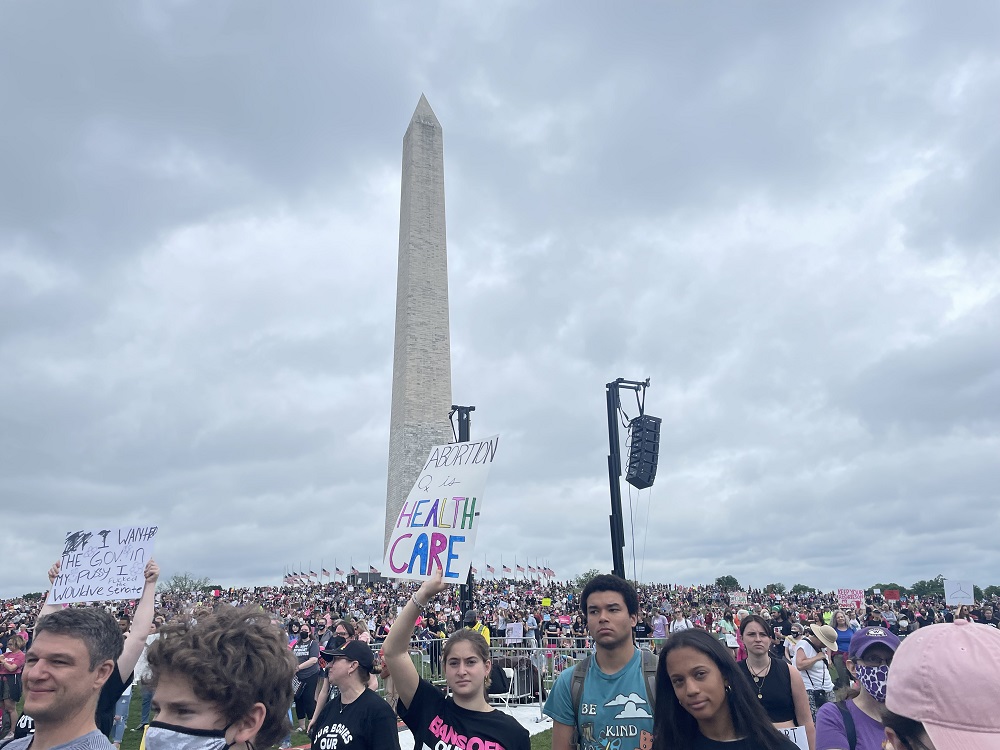
Perry, a vendor program associate with Street Sense Media, worries about how low-income people and people experiencing homelessness will be affected in the coming months.
“It’s a woman’s right to choose,” she said.
Nearly half of people who receive abortions live below the federal poverty level, according to the Guttmacher Institute. Another quarter identifies as being “very close” to poverty. Some studies have shown up to 20 per cent of women seeking abortions in metro areas were experiencing homelessness or housing instability.
With close to 15 per cent of D.C.’s population living in poverty, according to the latest census data, the city’s most vulnerable residents will be affected by future reductions in reproductive care access.
Abortions have always been difficult to access
Even though abortions had been legal since 1973, low-income people have consistently struggled to find access to steady health care. Obstacles include cost, knowledge of reproductive health and physical access to providers, according to a study published in the academic journal Health and Social Care in the Community.
“Roe v. Wade was never enough,” Benny Del Castillo, the interim Board President of the DC Abortion Fund, said. “Roe v Wade provided legality into the mix. However, it never guaranteed true access.”
For those who cannot afford the full cost of an abortion, the D.C. Abortion Fund is an all-volunteer non-profit that gives grants to pregnant people in the Washington region and to people who travel to the District.
And the variation of state abortion laws adds further challenges, particularly for Washington region residents.
“It’s just another way to really exert power and control over the most marginalized. Taking away even more autonomy is bound to wreak even more havoc than they’re already experiencing.”
While abortion is legal in D.C. at all stages of pregnancy, including late-stage and third-trimester abortions, Medicaid does not cover the cost of an abortion except in cases of life endangerment, rape or incest. In 2017, a Republican-led House voted to prevent the District from using local tax dollars to subsidize abortion services for low-income women, limiting access to abortions for low-income people.
Abortions are illegal in the third trimester unless the patient’s life or health is endangered in Virginia. Medicaid cannot be used to subsidize an abortion.
In Maryland, abortions after viability (meaning the baby can survive if born) are illegal, but Medicaid can be used to cover the cost of the abortion. Lawmakers in Maryland just voted to expand access, allowing health practitioners other than physicians to perform abortions.
Because people living in deep poverty typically do not have access to health care and insurance, it can be hard to detect a pregnancy and receive an abortion early on, according to Dr. Karen A. Scott, a board-certified OB-GYN and founding CEO and owner of Birthing Cultural Rigor, a science consulting firm.
THREAD: It's official – Roe v. Wade is overturned. Here's some key information about how people below the poverty level will be affected, and what it means for DC. https://t.co/eGFzJj8jTw
— Kaela Roeder ✏️ (@RoederKaela) June 24, 2022
Often when a person is experiencing homelessness or living in deep poverty, they may also have a harder time being in tune with their body and noticing changes, as well, Scott said. In fact, Leise Gergely, a community advocate with My Sister’s Place, a domestic violence housing and services organization in the District, said she comes across clients who have expressed this idea.
Tracking your period or ovulation just isn’t a priority when you’re dealing with the stress and trauma of homelessness, says Scott. Additionally, pregnancy tests are also costly and not easily accessible to purchase, administer and interpret. People also frequently experience long delays in getting timely appointments or require co-pays which add additional burdens to obtaining care.
“Some people may not even be aware that they have missed a period because they are concerned about the other determinants of health, like how they will find and secure safety, shelter, food, work and nurturing human attachments,” Scott said. “Those take precedence, so people sometimes are not aware of what’s happening in their body.”
This delay has material impacts; it’s harder and more expensive to find places that cater to abortions later on in the pregnancy and in the third trimester, Del Castillo said.
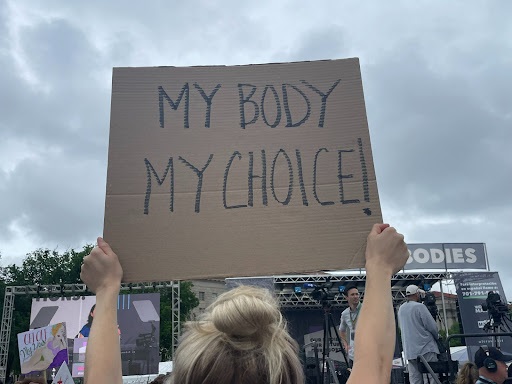
But even an early abortion can be cost-prohibitive: the average price for an abortion during the first trimester ranges from about $400 to $600, depending on the clinic. Late-term abortions can cost upwards of $2,000, according to Planned Parenthood.
People experiencing homelessness – particularly women — also face an outsized threat of sexual assault and trafficking, according to a study by UNANIMA International. Sexual violence and abortions are inextricably linked, Del Castillo explained.
“It’s just another way to really exert power and control over the most marginalized,” she said.
Abortions are common among trafficking survivors, according to a peer-reviewed study by the science journal Annals of Health Law and Life Sciences. More than half of 67 respondents in the study said they had received at least one abortion, and 20 respondents reported receiving multiple abortions.
Society has already taken so many choices from people experiencing violence, poverty and housing instability that limited access to abortion is part of a larger pattern, Gergely said.
“Taking away even more autonomy is bound to wreak even more havoc than they’re already experiencing.”
Courtesy of Street Sense Media




